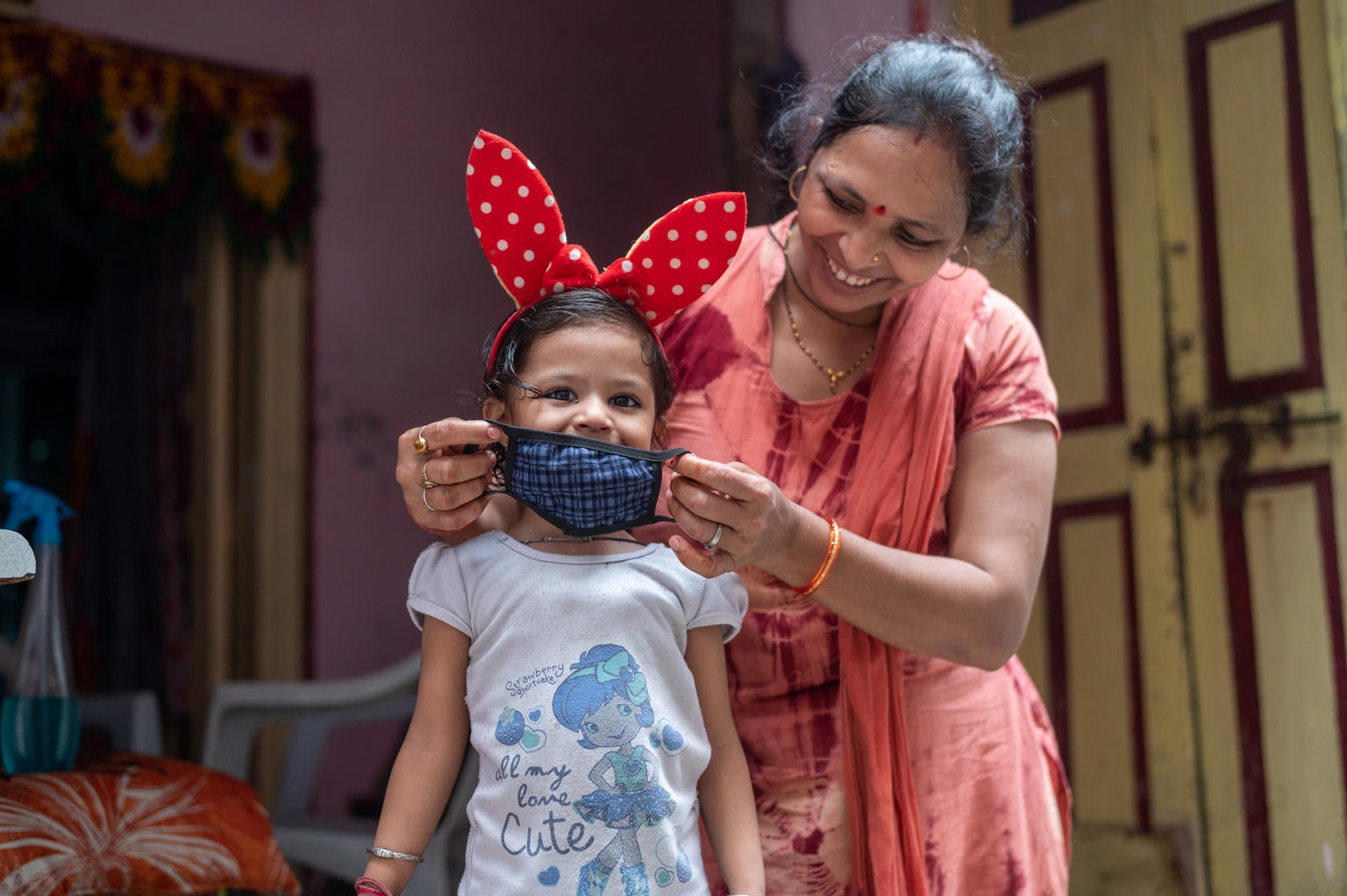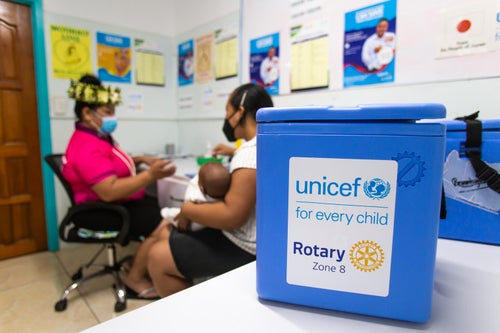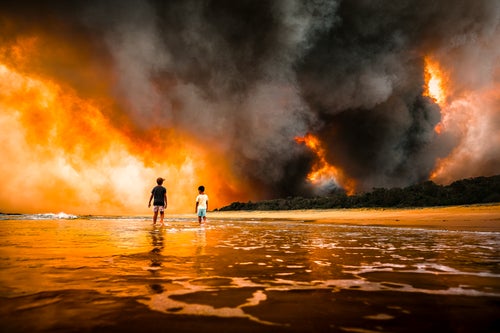From the looming threat of climate change, to isolation of the global COVID-19 pandemic, and the ongoing violence in countries like Yemen, Afghanistan and Nigeria, 2020 has been a difficult year for children and young people around the world.
And still, despite all this, there have been incredible moments of hope, joy and solidarity. UNICEF teams have worked tirelessly on the ground to protect and care for children living in some of the most challenging corners of the world. All made possible with help from our generous donors.
Before 2021 begins, we look back at the life-saving work of UNICEF and the moments this year that made us smile.
Fiji
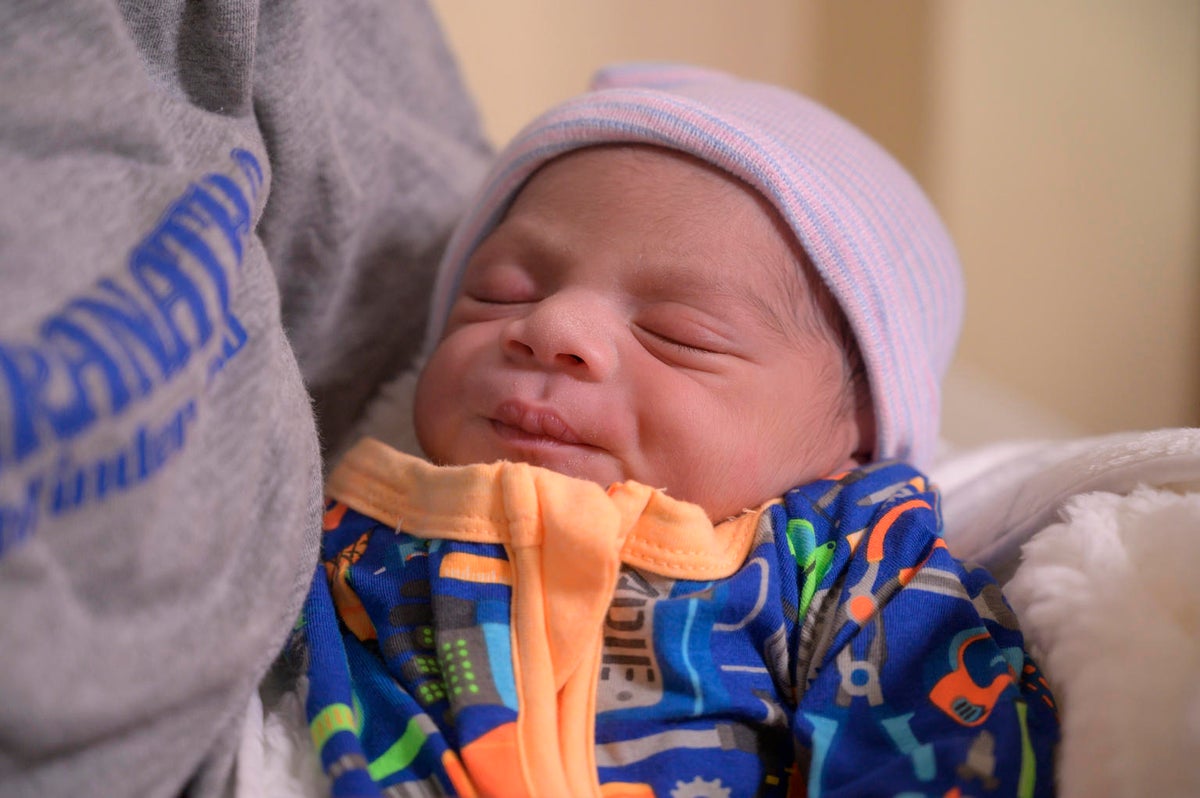
“I want my baby to grow up healthy and have a happy life,” says Laisani while looking at her tiny newborn son. Mitieli is one the world’s first newborn babies for 2020. He was born just 10 minutes after midnight and in good health at a maternity hospital.
The newborn period is when a child is at its most vulnerable but where there is new life there is always hope. UNICEF works with the Ministry of Health in the Pacific to improve newborn care, from preventing hypothermia through kangaroo care, to healthy breastfeeding. Because every child deserves the best possible start at life.
Syria
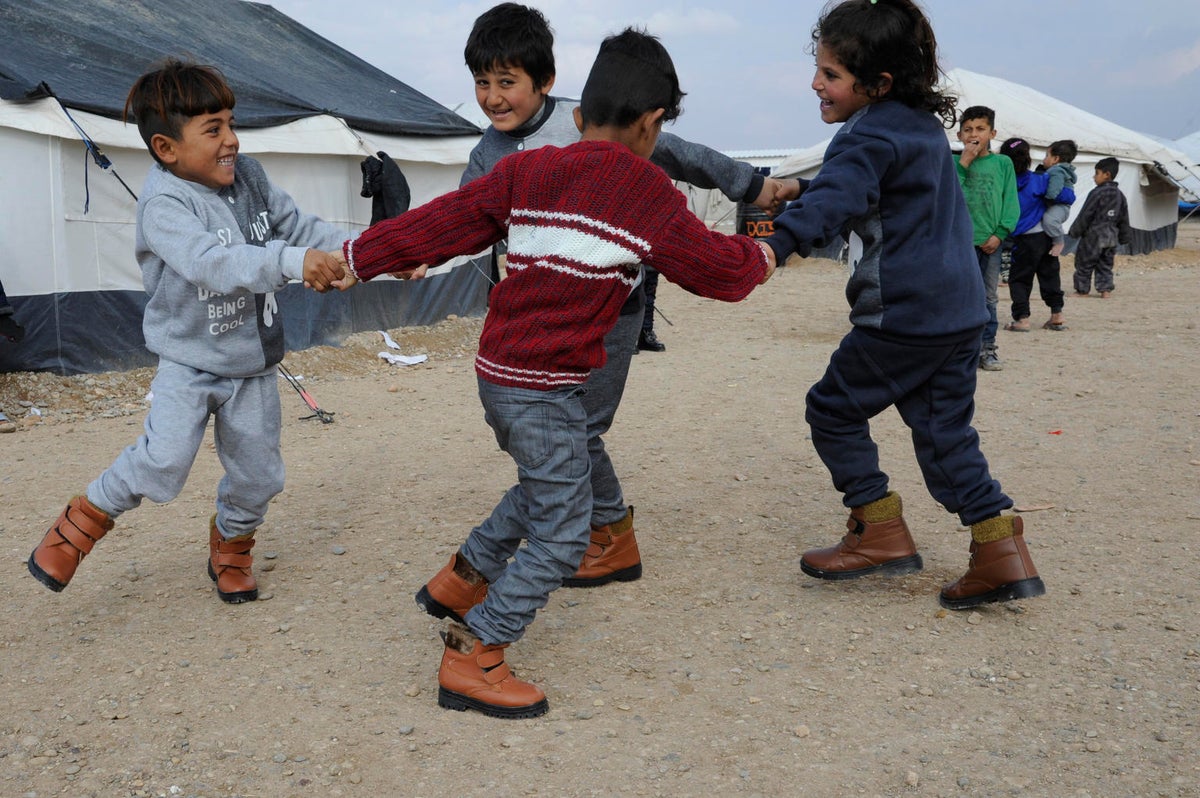
Somehow, no matter how difficult the circumstances, children almost always manage to find an opportunity for play and laughter. These little ones shared a moment of joy at a displacement camp in northern Syria early this year as their families braced for the tail end of yet another harsh winter living in tented camps.
"I usually layer three or four sweaters to go to school because I don’t have a warm winter jacket," says Mustafa,13, in rural Damascus.
"Now I have one [a jacket] to protect me against the cold and the rain."
After nine years of war, poverty and displacement continues to affect Syrians across the country but UNICEF was there to help bring warmth and ensure children could start the year off right. UNICEF distributed warm winter clothes, including jackets, hats, scarves, gloves as well as winter shoes.
India
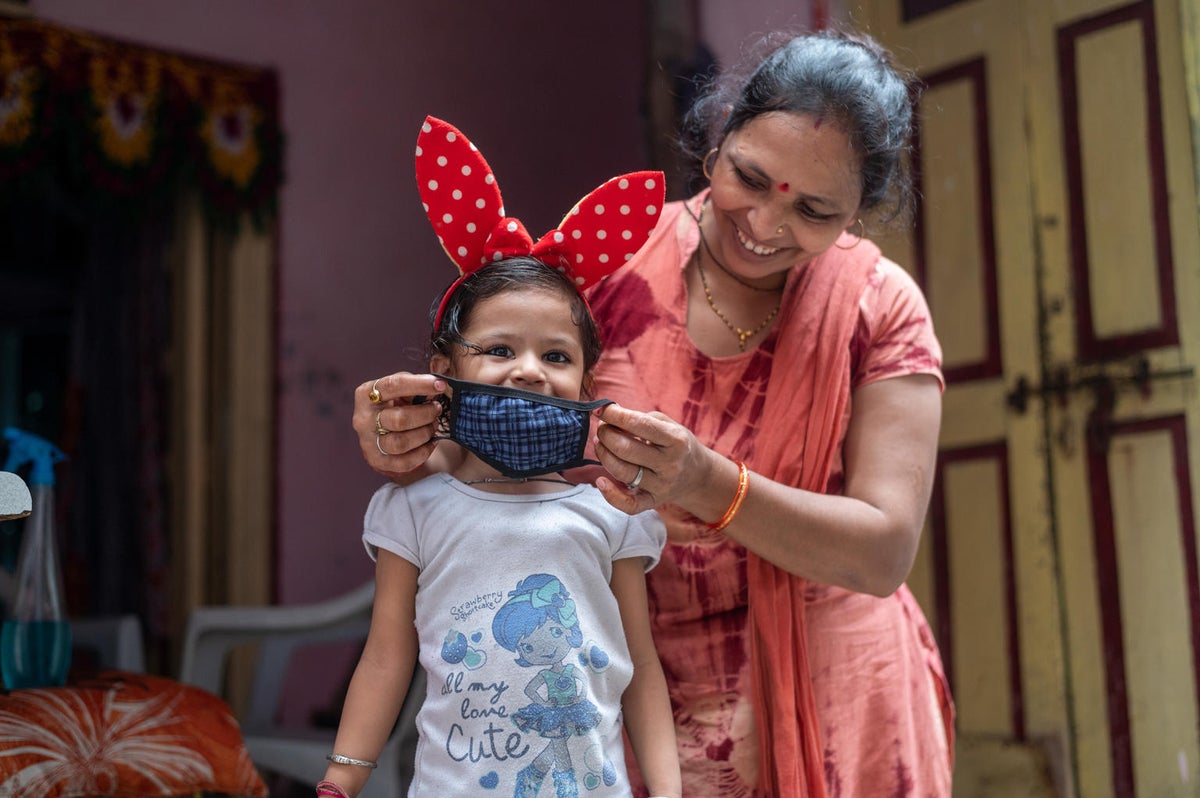
The global coronavirus pandemic has changed life as we know it. Earlier this year, schools closed, health care systems struggled, and many families were confined to their homes as the virus spread. Through it all, children showed remarkable resilience, adapting to the new normal of social distancing and masks.
From delivering life-saving health supplies, to building water and hygiene facilities, to keeping children connected to education, UNICEF teams have been working to slow the spread of COVID-19 and minimise its impact on children worldwide.
In India alone, UNICEF has reached 660 million children and their families with accurate information on how to stay safe from COVID-19.
Afghanistan
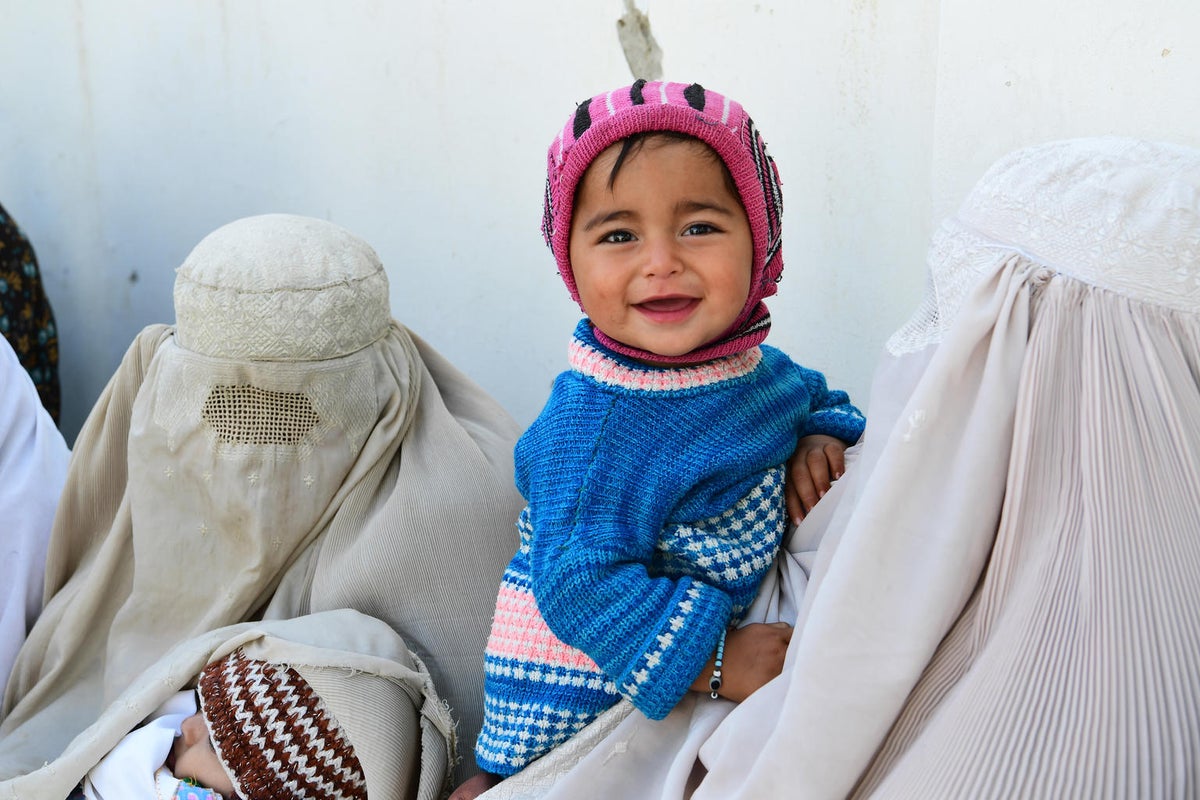
This little one is all smiles at a UNICEF-supported clinic in Afghanistan. Despite years of drought, recently intensifying conflict and now COVID-19, UNICEF continued to reach children in need with life-saving assistance throughout 2020.
As COVID-19 spread across the country, many families were concerned about attending health centres like this one.
In response, UNICEF mobile teams reached hundreds of thousands of children and women with primary health care in some of the most vulnerable communities. Health care workers were provided with essentials, such as hand sanitisers, masks and gloves, to ensure children could receive routine health care safely.
UNICEF remains one of the few agencies working on the ground in Afghanistan to provide not only immediate aid but also to negotiate access with government and non government groups to reach children in need.
Australia
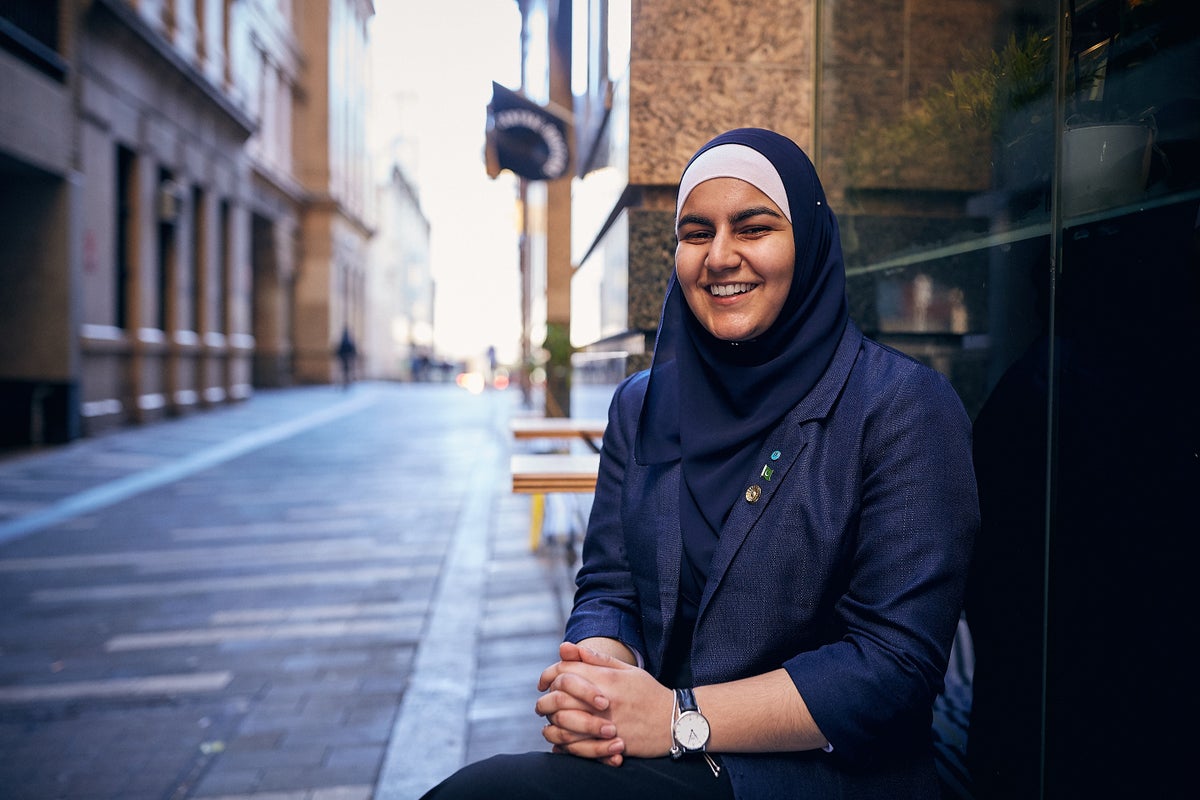
Young people have been working on the frontlines of the pandemic.
Hawa, 20, is a UNICEF Australia Young Ambassador who works at a local pharmacy in Sydney, and like many of her peers, did so throughout the lockdown. Some people were frightened or nervous, but others were kind, patient and generous.
“The highlight of my time was when a little girl ran up to me at work and handed me a flower, saying thank you for your hard work and perseverance,” she says.
"It is moments like these that spread encouragement and increase morale because small acts of kindness are almost contagious."
A survey by UNICEF Australia found one in five young people (13-17 years old) work in a job that puts them at risk of contracting COVID-19 – and did so as essential employees throughout the lockdown.
Across Australia, all aspects of young people’s lives have been impacted by the COVID-19 pandemic and national response to it. Learn more about how COVID-19 is affecting young people in Australia through our Living in Limbo report.
Côte d'Ivoire
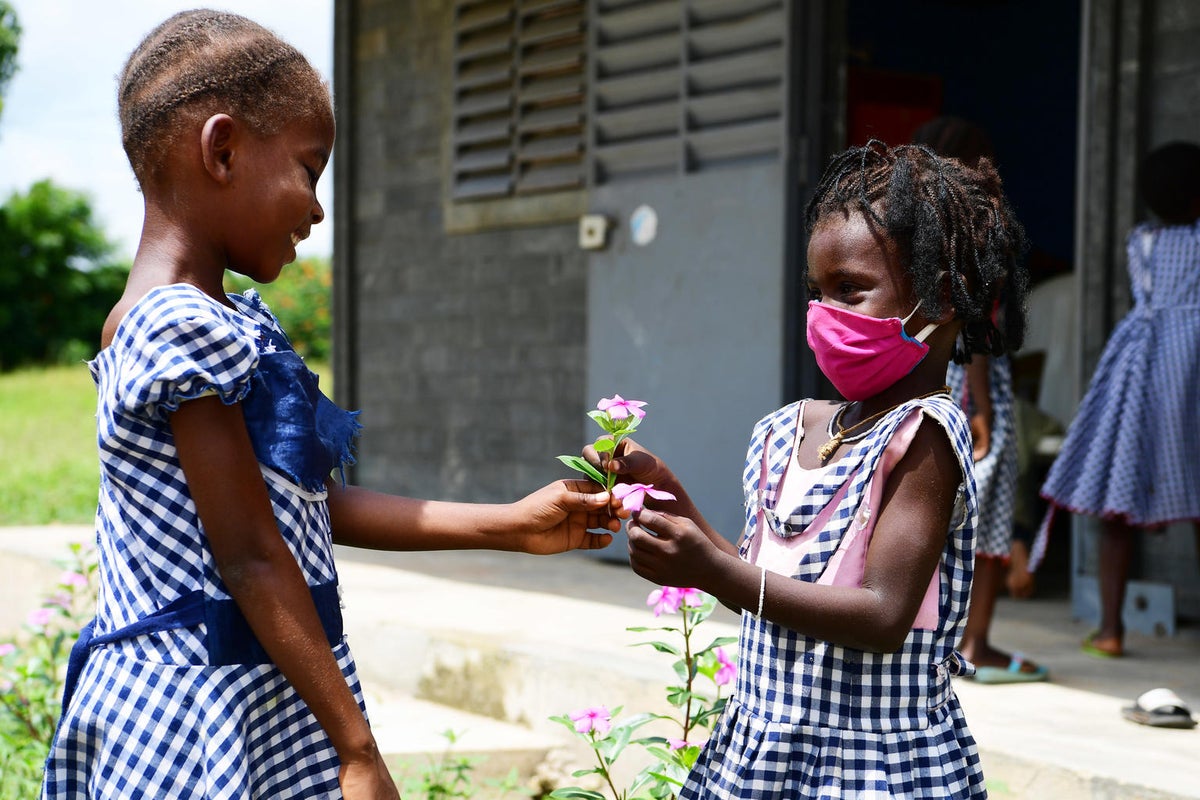
These girls share a smile as classes resume in Côte d'Ivoire. When schools reopened, children were happy to see their friends again and get back to learning.
Around the world, schools closed for several months due to the COVID-19 pandemic, putting more than 1 billion children at risk of falling behind. Schools do much more than teach children how to read, write and count. They also provide nutrition, health services, mental health and psychosocial support, and more.
UNICEF worked with governments to support the safe reopening of schools by issuing guidelines and providing schools with soap, hand sanitiser, temporary handwashing stations and thermometers.
Indonesia
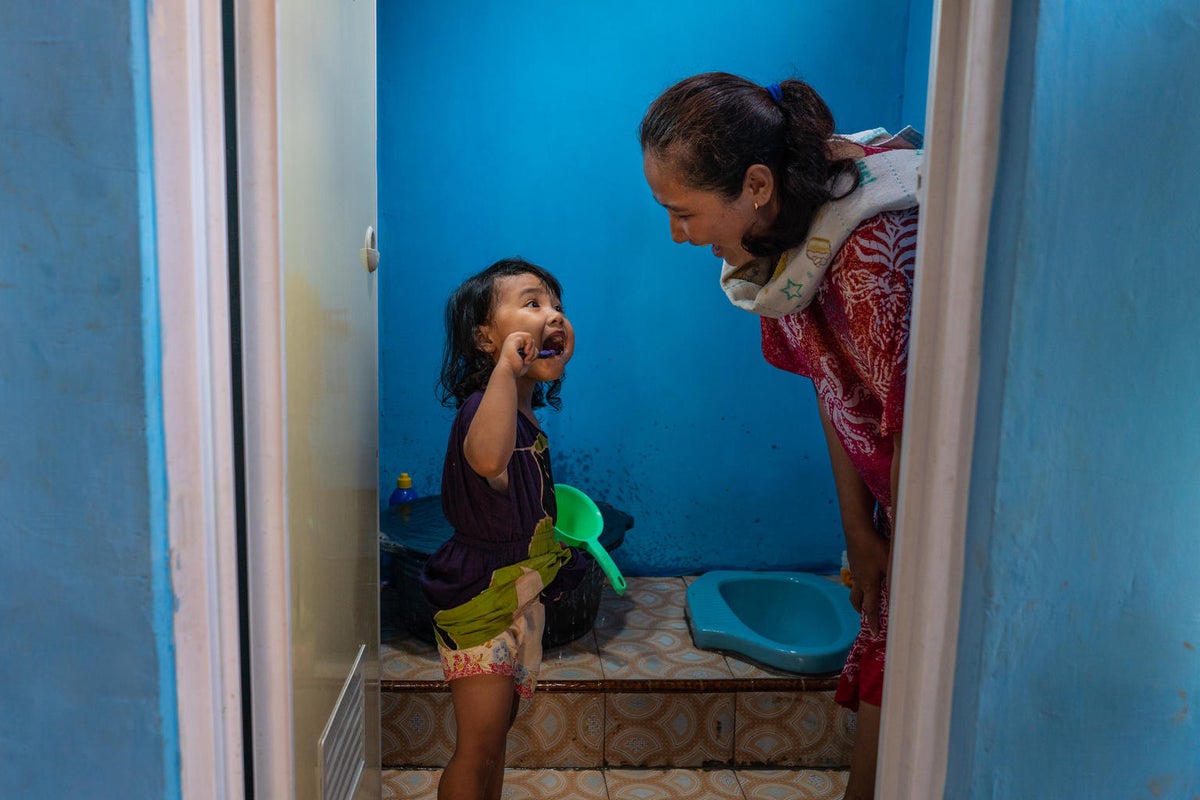
Little Fika is brushing her teeth with help from her mum Rini in their new washroom. Their home in Central Java, Indonesia was inundated by floods causing their old toilet to fall apart and forcing them to use an outside latrine until it was fixed.
A quarter of all children under five in Indonesia suffer from diarrhoea. It may sound simple but building latrines and ensuring access to safe water is key to keeping children and families healthy. UNICEF has reached more than 2.9 million people with water and sanitation supplies for health facilities, schools, public places and homes, like Fika’s.
Burkina Faso
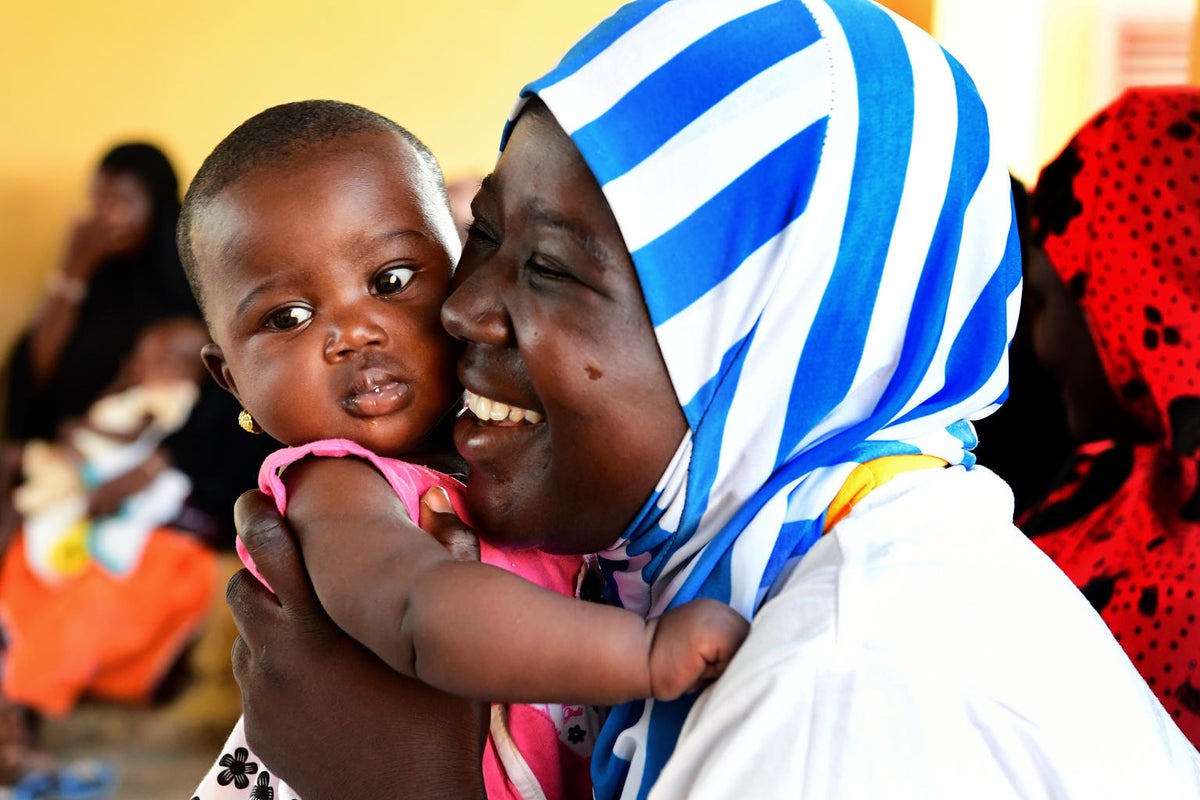
In August, the entire continent of Africa was declared free of wild polio. This is an incredible milestone which shows the power of vaccines and gives us hope that, collectively, we can control and eradicate deadly and debilitating diseases.
Yet, this life-saving work must continue – even during a pandemic – to help protect children from polio and prevent it from returning to areas now declared polio free. Every year, UNICEF manages the procurement and distribution of more than one billion doses of polio vaccine.
This year, UNICEF supported the polio immunisation campaigns around the world, including here in Burkina Faso which reached more than two million children.
Lebanon
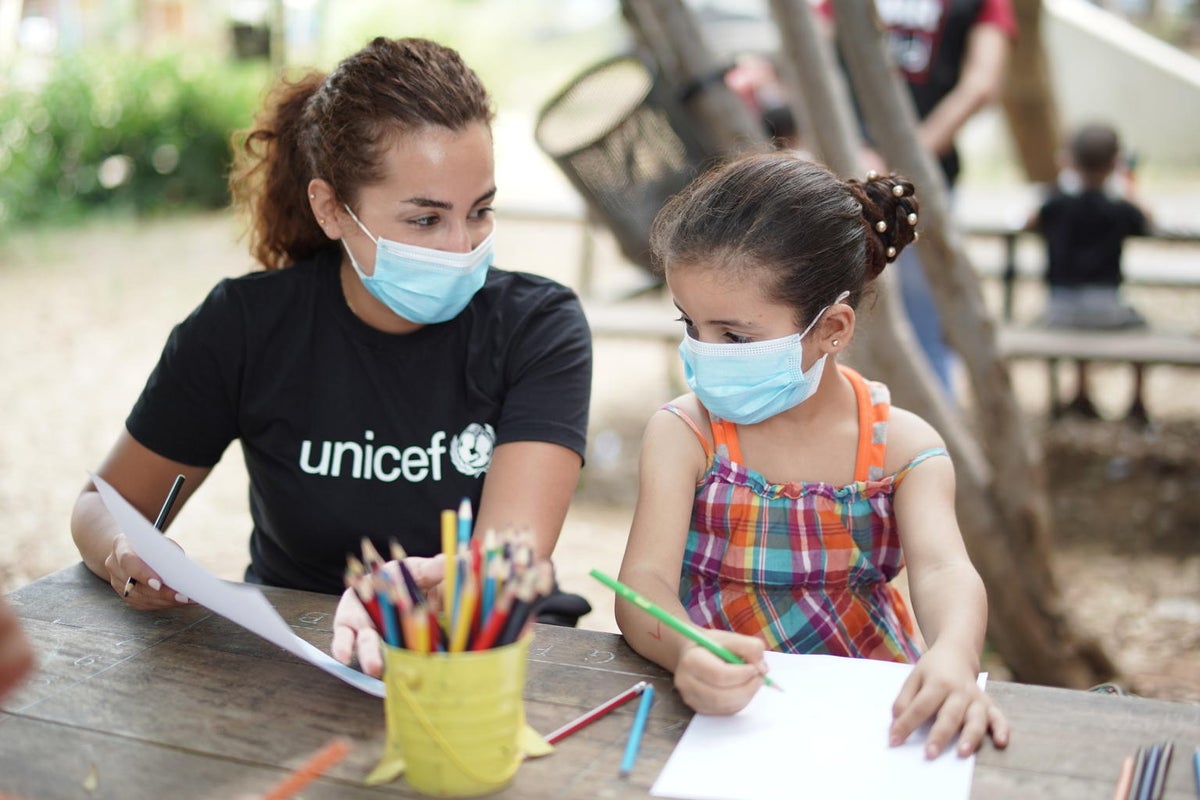
No matter where they are in the world or what they’ve experienced, every child deserves the chance to play and learn. Here, a young girl is drawing in a child-friendly space a month after the Beirut explosion.
On 4 August 2020, explosions shook Beirut, Lebanon, tearing apart the lives of hundreds of thousands of people, and most profoundly felt by families and their children. In the aftermath, UNICEF was on the ground to provide psychological support and child-friendly spaces like this one in a public garden.
“Coming to the safety park helps – with the team from UNICEF we play games and we learn some easy things together,” says Abdul, 10.
“It’s not the same as school, but when you’ve lost as much as we have in this neighbourhood, something like this becomes really important.”
Papua New Guinea
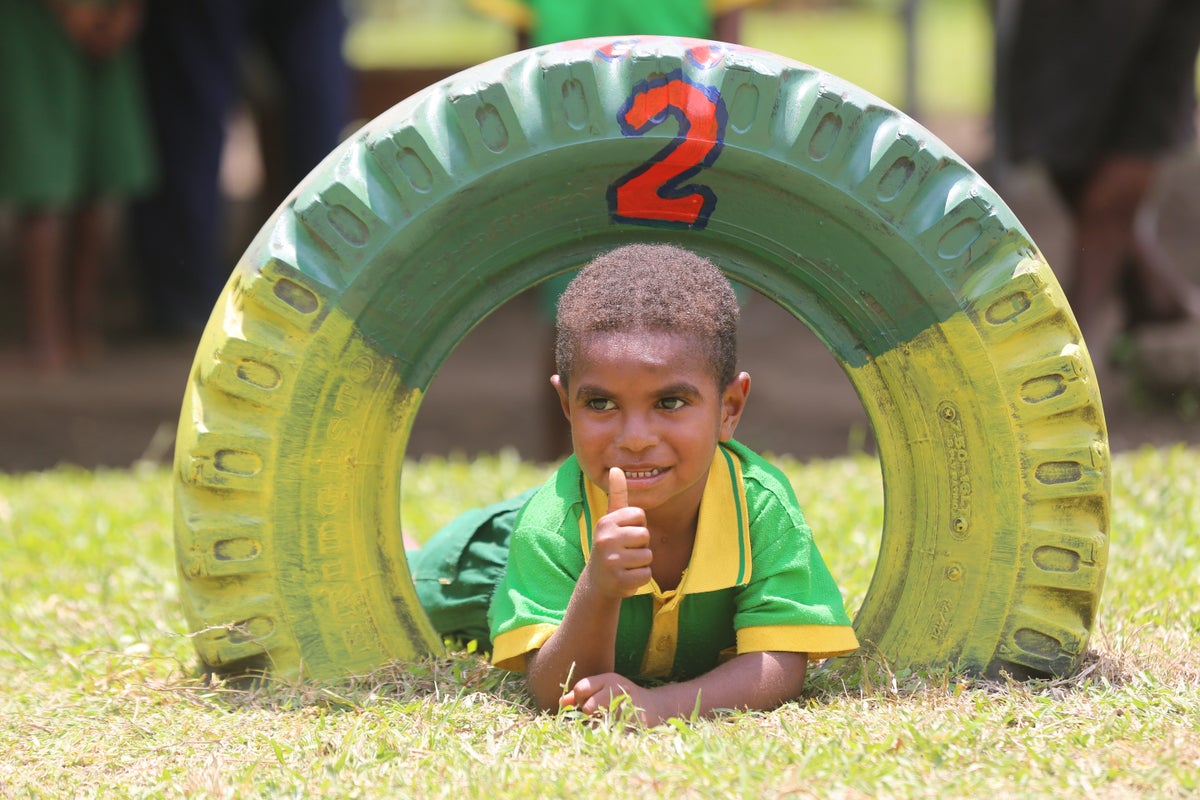
“Now that we have a school here, I am very happy. Our small children sleep well because the school is here in the community and they don’t have to wake up very early in the morning to go to the elementary school,” says father of two, Peter.
For many children in rural Papua New Guinea, getting to school is no small feat. The nearest school is sometimes hours away by foot, meaning many kids are forced to stay at home and miss out on an education.
UNICEF is working to change this. This inclusive early childhood development (ECD) centre in Morobe Province was established by local parents after they received ECD training from UNICEF. The two brothers, Peter and James, rallied their small community to build two classrooms.
Every child deserves the opportunity to learn, to be their best and give their all.
Cambodia

Life hasn’t been easy for Lisa in Ratanakiri, Cambodia. Her father died in a traffic accident when she was just three years old and today, she works in the fields after school picking vegetables to support her family.
"What’s important is helping people, saving lives."
Despite all the challenges she’s been through, Lisa has bright hopes and dreams for the future. The 12-year-old wants to become a nurse or pharmacist.
“I want to help people who have had accidents or emergencies. People don’t get help fast enough here, so I think I could make the world better,” she says. “What’s important is helping people, saving lives.”
Many children in Cambodia are falling behind in school. UNICEF works to ensure all children have equal and inclusive access to education. This means tackling the barriers that keep children away from school, such as poverty, remoteness or discrimination.
Stand by children in 2021
UNICEF Australia has an amazing group of supporters called Global Parents who make an ongoing pledge to protect and support children through their first 1,000 days of life. By signing up with a monthly gift, our Global Parents make a beautiful commitment: that wherever a child is born and whatever comes their way, we'll give them a life, a chance, a choice.
You can help us continue this critical work for kids, wherever the need is greatest.
Become a Regular Donor
For every child in crisis.
Related articles
Stay up-to-date on UNICEF's work in Australia and around the world



